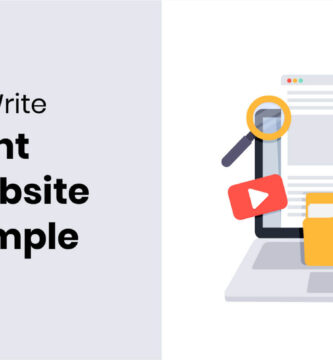Using a website builder offers numerous benefits, especially for individuals and small businesses that want a cost-effective and user-friendly solution for creating an online presence. Here are some key advantages of using a website builder:
1. Ease of Use:
- No Coding Skills Required: Website builders are designed with a user-friendly interface, allowing individuals with no coding or technical skills to build and manage their websites.
- Intuitive Drag-and-Drop Functionality: Most website builders incorporate drag-and-drop features, making it easy to add, arrange, and customize elements on the webpage.
2. Cost-Effective:
- Affordable Solutions: Website builders often offer affordable plans, eliminating the need for a significant upfront investment.
- No Additional Hosting Costs: Many website builders include hosting as part of their packages, reducing the overall cost of website ownership.
3. Quick Deployment:
- Rapid Website Creation: With pre-designed templates and easy customization options, users can create a functional website in a short amount of time.
- Instant Publishing: Changes and updates can be published instantly, allowing for quick iterations and updates to the website.
4. No Software Installation:
- Cloud-Based Platforms: Website builders are often cloud-based, eliminating the need for users to install and maintain software on their local machines.
- Accessibility from Anywhere: Users can access and manage their websites from any device with an internet connection.
5. Template Variety:
- Diverse Design Options: Website builders typically offer a variety of templates catering to different industries and styles.
- Customization: While starting with a template, users can customize layouts, colors, fonts, and other design elements to match their brand or preferences.
6. Technical Support:
- Customer Support Services: Website builders often provide customer support, including tutorials, forums, and direct assistance, making it easier for users to troubleshoot issues.
- Maintenance and Updates: Regular updates and maintenance tasks are handled by the website builder, reducing the burden on users.
7. Mobile Responsiveness:
- Responsive Designs: Many website builders automatically create mobile-responsive designs, ensuring that websites look and function well on various devices.
- Cross-Browser Compatibility: The generated websites are often optimized for compatibility across different web browsers.
8. SEO Features:
- Built-In SEO Tools: Website builders often include built-in SEO features, helping users optimize their websites for search engines.
- Metadata Management: Users can easily manage metadata, URLs, and other elements that impact search engine rankings.
9. Scalability:
- Room for Growth: As businesses or personal projects grow, website builders typically offer scalability options, allowing users to expand their websites' functionality.
- E-commerce Integration: Many website builders support e-commerce features, enabling users to set up online stores and sell products.
10. No Server Maintenance:
- Managed Hosting: Website builders handle server maintenance tasks, ensuring that users don't need to worry about server configurations, security, or updates.
- Security Measures: Built-in security features help protect websites from common vulnerabilities.
11. Integration with Third-Party Apps:
- App Marketplaces: Many website builders have app marketplaces where users can integrate third-party applications, plugins, or widgets to enhance functionality.
- Social Media Integration: Seamless integration with social media platforms allows for easy sharing and interaction.
12. Community and Resources:
- User Communities: Website builders often have active user communities where individuals can share experiences, ask questions, and seek advice.
- Learning Resources: Tutorials, documentation, and educational materials help users learn how to make the most of the website builder's features.
13. Consistent Updates:
- Feature Enhancements: Website builders regularly release updates and new features to stay current with technological advancements.
- Stability Improvements: Continuous updates improve the stability and performance of the website builder platform.
14. Reduced Development Time:
- Faster Time to Market: The simplicity of website builders significantly reduces the time required to bring a website from concept to completion.
- Focus on Content and Design: Users can concentrate on creating quality content and refining the design, rather than dealing with complex technical aspects.
15. Trial Periods and Money-Back Guarantees:
- Risk-Free Trials: Many website builders offer free trials or money-back guarantees, allowing users to explore the platform's features without committing upfront.
16. Flexibility for Non-Tech Users:
- Accessible to Non-Technical Users: Website builders empower individuals who may not have technical expertise to create and manage their own websites.
- Reduced Reliance on Developers: Users can make updates and changes without relying on external developers, saving time and costs.
Using a website builder can be a practical and efficient solution for individuals and small businesses looking to establish an online presence without the complexity and expense associated with custom website development. The choice of a website builder should align with specific needs, technical requirements, and long-term goals.
Chances are while your have been building your blog, website or link Read more
When you are starting an eCommerce business or looking to build a Read more
When you are planning to start an online business that sells physical Read more
The title of this post is actually incorrect and I’ll explain why. Read more
In this day and age Internet Marketing can be a tough feat. Read more
With the ever changing search engine landscape including recent updates like Google Read more
